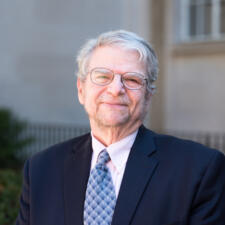It is nearly 50 years since I first set foot in France, and I have been returning to the country regularly ever since. The sights and sounds of Paris still exhilarate me: the purposeful clackety-clack of the low-heeled boots of long-legged women hastening toward the “mouth” of the Metro; the clatter of china and hiss of the espresso machine mingled with the laughter and chatter of a busy café; the fragrance of a truffade simmering in a parabola of cantal and crème fraîche on the rue Mouffetard; the joy of small children, cartables strapped to their backs, running down a cobblestone street as fast as their little legs will carry them to rejoin their classmates in the school courtyard before the raucous bell signals the start of the day. Just down the same street is a plaque indicating the place where Hemingway partook of the movable feast, a short walk from where, centuries earlier, Descartes pondered the cogito and around the corner from where Valéry Larbaud hosted James Joyce as he put the finishing touches on Ulysses.
Half a century ago, the French were concerned and anxious about the United States. Would we ever extricate ourselves from Vietnam? Could anyone predict what Richard Nixon would do?
Today, the anxiety is back, in spades. A shopkeeper, realizing that I was American, offered his commiseration on the outcome of the election. A cabdriver, driving me to the studios of France 24, where I was to comment in real time on Trump’s inaugural speech, wondered how far the new president would go. Had America lost its mind—again? Later, in a very different venue—the hushed and padded dining room of one of France’s best restaurants—an investment banker and a former senior military advisor to the French government raised the same question.
Plus ça change, plus c’est la même chose, as the saying goes. Yet in French politics, things have changed—quite a lot. Voters are more volatile than ever before. Party lines have blurred. None of the people mentioned in the previous paragraph—the shopkeeper, the cab driver, the investment banker, or the senior military officer—will vote this year for the same party as 20 years ago. One has moved to his right, two to their left, and the fourth will abstain altogether.
The Socialist Party held its primary during the time I was in France, and the surprise winner was Benoît Hamon, one of the leaders of the dissident Socialist faction known as les frondeurs (a term derived from a rebellion that took place early in the reign of Louis XIV).
Hamon was not the only frondeur in the race. He was joined by Arnaud Montebourg, who early on was seen as the favorite to unseat former Prime Minister Manuel Valls. Older (at 55 compared to Hamon’s 49), more flamboyant, and better known thanks to assiduous cultivation of the media, Montebourg came to personify the left-wing opposition to president François Hollande’s “neoliberal” turn after he was abruptly dismissed from his post as minister of industrial revival. Hamon, then minister of education, was cashiered along with Montebourg for resisting Prime Minister Valls’s “I love business” (j’aime l’entreprise) line.
Montebourg made two mistakes, however. Confident that he, more than any other candidate, embodied the gauchiste disgust with Hollande’s repudiation of the anti-finance capitalism platform on which he was elected, Montebourg sought to “presidentialize” his image before the first round of the primary. He soft-pedaled his rhetoric and muffled his flamboyance in unaccustomed sobriety. Yet he continued to croon the same tune that had made him such an irritant to Hollande’s first prime minister, Jean-Marc Ayrault, whose replacement he had conspired with Valls and Hamon to bring about.
“Economic patriotism” (meaning subsidies for firms on the verge of collapse or threatened with removal outside of France, as well as resistance to foreign investment in strategic sectors) along with outspoken opposition to austerity had long been Montebourg’s stock-in-trade. What Hamon recognized, however, was that even though the party’s left wing continued to accept as gospel this economic critique of the Hollande-Valls line, repetition had robbed it of its power to mobilize.
The opposition between the government’s “social liberal” stance and the position of its “anti-austerity” critics had become stale, and given continued German opposition to significant economic stimulus, few voters unhappy with the party line believed that merely electing an anti-austerian would suffice to change the status quo. They had already tried that with Hollande, who had railed against austerity as a candidate only to reverse himself once in power.
